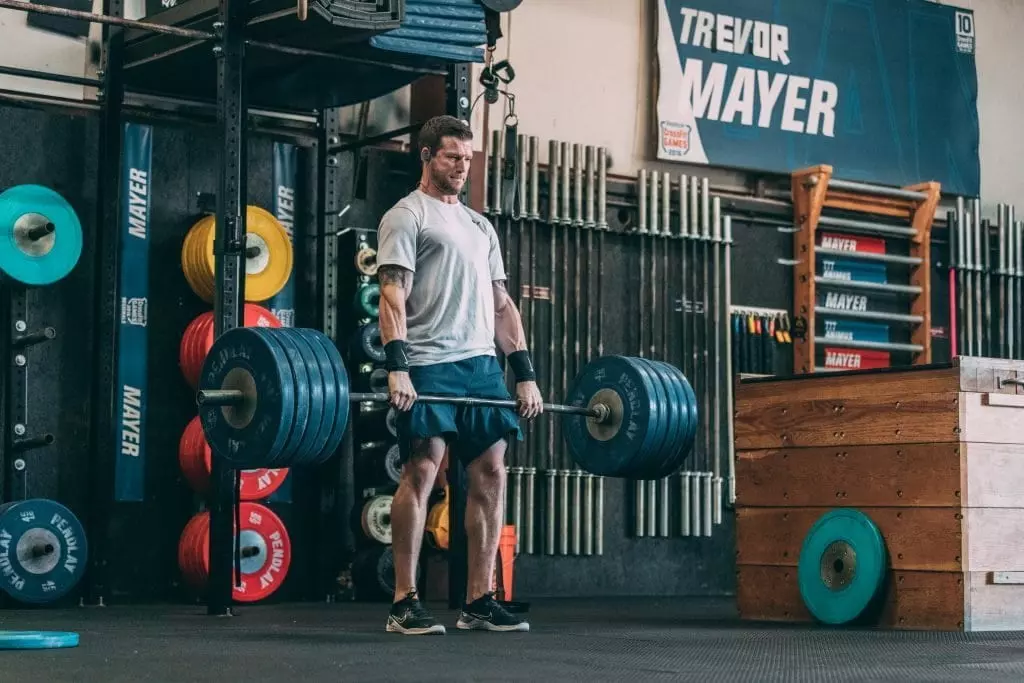Are you ready to take your Crossfit performance to the next level? If you’re looking for that extra edge to enhance your strength, power, and recovery, one supplement has been gaining attention among athletes, creatine. In a study titled “Creatine Supplementation and endurance performance surges and Sprints to Win the Race,” conducted by Scott C. Forbes, Darren G. Candow, Joao Henrique Falk Neto, Michael D. Kennedy, Jennifer L. Forbes, Marco Machado, Erik Bustillo, Jose Gomez-Lopez, Andres Zapata, and Jose Antonio, the researchers delve into the potential benefits of creatine supplementation for endurance performance. Let’s explore the intriguing findings and understand how creatine may play a crucial role in your CrossFit journey.
BENEFITS OF CREATINE FOR CROSSFITTERS PERFORMANCE AND RECOVERY


Creatine supplementation has gained popularity among CrossFitters and athletes due to its potential benefits in enhancing exercise performance and overall athletic abilities. Creatine is available in different forms, including creatine monohydrate and micronized creatine monohydrate, commonly used in creatine supplements.
By understanding the benefits and effects of creatine, CrossFitters can make informed decisions regarding its inclusion in their training and supplementation routine.
IMPROVED EXERCISE PERFORMANCE AND POWER OUTPUT
Scientific evidence support that creatine supplementation can positively impact exercise performance, particularly in activities requiring high-intensity and short-duration efforts.
Taking creatine post-workout, along with the amino acids arginine, can synergistically promote muscle recovery and growth. Arginine, as an amino acid, supports nitric oxide production, which can enhance blood flow to the muscles and aid in nutrient delivery when combined with post-workout creatine supplementation.
This includes weightlifting, sprinting, and high-intensity interval training (HIIT). Creatine supplementation has enhanced power output, allowing CrossFitters to generate more force and perform at their best during intense training sessions and competitions.
INCREASED MUSCLE STRENGTH AND MAXIMAL STRENGTH
Creatine has been reported to significantly increase maximal strength significantly, benefiting CrossFitters seeking to improve their performance in weightlifting and other strength-based exercises.
By facilitating the regeneration of adenosine triphosphate (ATP), creatine helps provide the necessary energy for muscle contractions, allowing athletes to push their limits and achieve greater strength gains.
ENHANCED RECOVERY AND REDUCED FATIGUE
One of the key advantages of creatine supplementation is its ability to promote faster recovery between training sessions. CrossFitters often engage in high-frequency and demanding workouts, leading to muscle damage and fatigue.
Creatine supplementation has been associated with shorter recovery times, enabling athletes to bounce back quicker and perform at their best in subsequent training sessions. Additionally, creatine has the potential to reduce perceived fatigue, helping CrossFitters sustain their energy levels throughout workouts and competitions.
BODY COMPOSITION AND MUSCLE MASS
Creatine supplementation has demonstrated positive effects on body composition, with studies suggesting an increase in lean muscle mass and a reduction in body fat. This is particularly interesting to CrossFitters, aiming to improve their body composition and achieve a more muscular and defined physique.
By promoting muscle protein synthesis and providing an additional energy source for intense workouts, creatine can contribute to developing a leaner and stronger physique.
CONSIDERATIONS AND SAFETY
Before incorporating creatine supplementation into their regimen, CrossFitters should be aware of certain factors. Proper dosage and timing of creatine intake, including the loading phase and maintenance dose, should be considered.
It is also important to ensure adequate hydration and consult a healthcare professional before starting any new supplementation protocol. While creatine supplementation is generally considered safe and well-tolerated, individuals with pre-existing kidney or liver conditions should exercise caution and seek medical advice.
By understanding the potential advantages and considering safety guidelines, athletes can make informed decisions regarding including creatine in their training and supplementation routine, potentially leading to improved athletic performance and overall fitness.
TRAVIS MAYER AND CROSSFIT


Travis Mayer is a well-known CrossFit athlete who has demonstrated the positive effects of creatine supplementation on athletic performance. CrossFit is a high-intensity fitness program that combines various functional movements and exercises. As an elite CrossFit athlete, Travis Mayer’s experience and success testify to the potential benefits of creatine for athletes engaged in similar activities.
CREATINE AND ATHLETIC PERFORMANCE
Creatine supplementation has been shown to significantly impact athletic performance, particularly in activities that require short bursts of high intensity, like CrossFit. By increasing the availability of adenosine triphosphate (ATP), creatine provides a readily accessible energy source for the muscles, allowing for improved power output, maximal strength, and anaerobic performance. This is particularly beneficial in CrossFit workouts that involve rapid movements, heavy lifts, and explosive exercises.
TRAVIS MAYER’S SUCCESS AND CREATINE SUPPLEMENTATION
Travis Mayer’s achievements in the CrossFit Games, where he consistently performs at a high level, demonstrate the potential benefits of creatine supplementation. His success showcases the positive impact of creatine on athletic performance, recovery, and overall body composition.
Travis Mayer has harnessed its advantages by incorporating creatine into his training regimen to support his pursuit of excellence in CrossFit.
Travis Mayer’s experience as a CrossFit athlete exemplifies the benefits of creatine supplementation for individuals engaged in high-intensity training and competition. Creatine’s ability to improve power output, maximal strength, recovery time, and body composition makes it an effective supplement for CrossFit athletes like Travis Mayer.
However, it is essential to consult a healthcare professional before starting any supplementation regimen to ensure proper usage and dosage. By leveraging the potential advantages of creatine, CrossFit athletes can optimize their performance, push their boundaries, and achieve their fitness goals.
HOW DOES CREATINE WORK?


Creatine is a naturally occurring compound in the body, primarily in skeletal muscle tissue, and it is crucial in energy metabolism, particularly during high-intensity and short-duration activities. Understanding how creatine works can shed light on its effectiveness as a supplement for enhancing exercise performance and muscle function.
ROLE OF ADENOSINE TRIPHOSPHATE (ATP) IN ENERGY PRODUCTION
Adenosine triphosphate (ATP) is the primary energy currency in the body. ATP is rapidly utilized during exercise to provide the energy needed for muscle contractions. However, the available ATP stores are limited and quickly depleted, especially during high-intensity activities like weightlifting, sprinting, or intense training sessions.
CREATINE AND ATP REGENERATION
Creatine acts as a reservoir for high-energy phosphate molecules in the form of phosphocreatine (PCr). When ATP levels decrease, PCr donates a phosphate group to ADP (adenosine diphosphate), rapidly regenerating ATP. This ATP regeneration process is vital for sustaining muscle contraction and maintaining exercise performance during intense and short-duration activities.
SCIENTIFIC EVIDENCE AND RESEARCH
Numerous studies have investigated the effects of creatine supplementation on exercise performance, with consistent evidence supporting its efficacy. Research has demonstrated improved power output, maximal strength, and anaerobic performance in athletes who use creatine supplements.
The scientific evidence “Creatine Supplementation and endurance performance” includes studies published in NCBI reputable journals that can provide further support for the effectiveness of creatine in enhancing athletic performance.
LOADING PHASE AND MAINTENANCE DOSE
Some individuals initially undergo a loading phase to maximize the benefits of creatine supplementation. This involves taking a higher dose of creatine (e.g., 20 grams per day) for several days, followed by a maintenance dose (e.g., 3-5 grams per day) afterward.
The loading phase aims to rapidly saturate the muscles with creatine, while the maintenance dose helps maintain elevated creatine levels over time.
For detailed research, read the full article here: https://www.ncbi.nlm.nih.gov/pmc/articles/PMC10132248/
Bear Balanced | World’s First Creatine Gummy®: https://www.bearbalanced.com/blogs/creatine/creatine-and-crossfit


